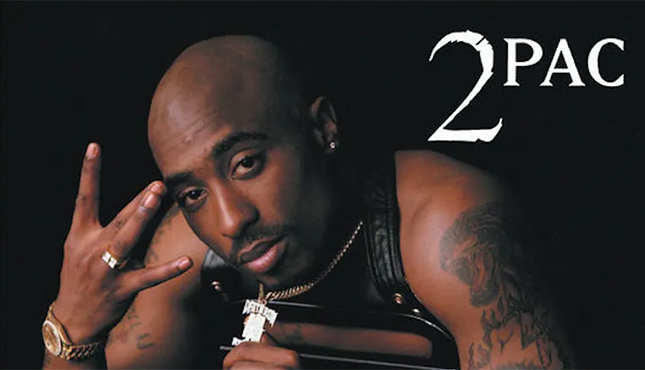music / News
Man Arrested & Charged In 1996 Murder Of Tupac Shakur
 Image Credit: Interscope Records
Image Credit: Interscope Records
A man has been arrested and charged in connection with the 1996 murder of rap icon Tupac Shakur. CNN reports that a grand jury indicted Duane Keith “Keffe D” Davis on charges of murder with use of a deadly weapon in connection with the slaying of Shakur in Los Angeles. Davis was arrested on Friday morning after his wife’s house was searched in July as part of the investigation into the shooting death.
Shakur was shot and killed on the Las Vegas Strip after leaving a boxing match on September 13, 1996. The killing happened at the height of the infamous East Coast-West Coast rap war and was followed months later by the murder of Christopher “Notorious B.I.G.” Wallace.
Authorities on Friday held a news conference in which they said Davis was the ringleader of the plot to kill Shakur, which they say was retaliation after his nephew was attacked. Davis himself placed himself in the front seat of the car that pulled up aside Shakur’s car when the bullets flew. Shakur was shot four times, and died six days after. He
According to authorities, the attack was retalation for an altercation after members of Death Row Records — including Shakur and Suge Knight — attacked Orlando Anderson while both groups were leaving the fight. Davis then spearheaded the plan to retaliate and got into a white Cadillac along with Terrence Brown, Deandre Smith and Anderson. Davis then allegedly gave the gun to the passengers, who fired into Shakur’s car. The indictment notes that Anderson and Smith were both in the back seat, and doesn’t say who fired the gun.
All the other individuals who were in the car aside from Davis are dead. Anderson denied his involvement before he died in a gang-related shooting in 1998. Authorities have said they knew the timeline of events for a while but didn’t have sufficient evidence. Davis admitted to his involvement in a memoir and confessed to the crime in 2009, but the confession wasn’t able to be used because he had a proffer agreement in which a suspect agrees to provide potentially useful information in an investigation, but the statements made generally cannot be used as evidence against them.







